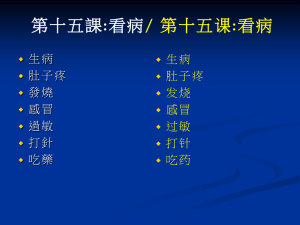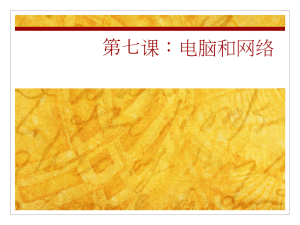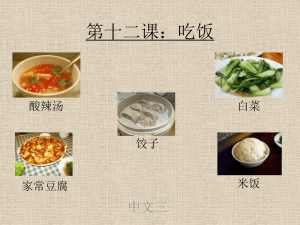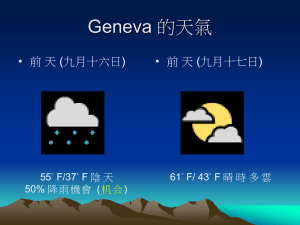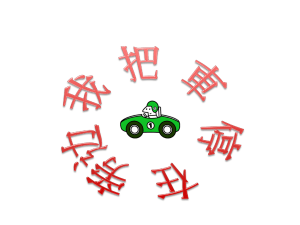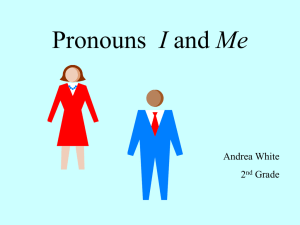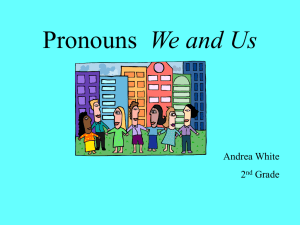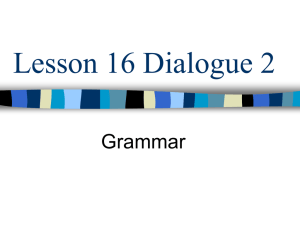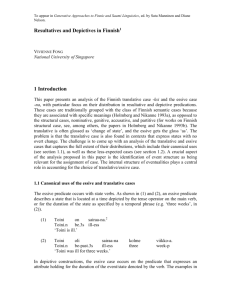(VO) V 得(很) Adj.
advertisement
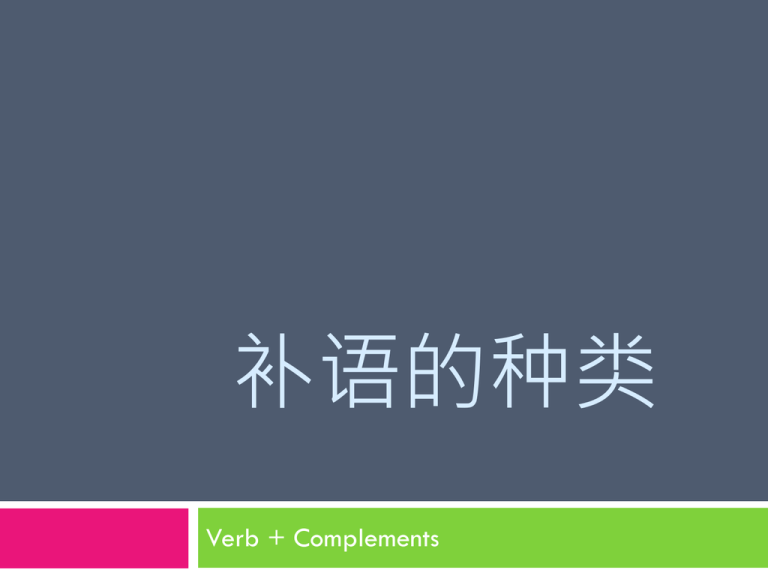
补语的种类 Verb + Complements Types of Complements Descriptive • How or to what degree the action took place • (V-O) V 得 (很) Adj. ; (V-O) V 得 不 Adj. Resultative • Whether the result of the action has been achieved • V Comp (了); 沒 V Comp Potential • Whether the result has the potential to be achieved • V 得 Comp; V 不 Comp Directional • the direction of the action • (沒) V Comp1 Comp2 补语1 Descriptive: (VO) + V. + 得 + Adj. 他说话说得很清楚。 我上个星期考试考得很好。 补语2:Resultative Complements Verb + Adjective Another Verb Denotes the result of the action 补语2:Resultative Complements 小白菜卖完了。 Verb 卖: action Verb 完:result Baby bok choy is sold out. 补语2:Resultative Complements 你找钱找错了。 Verb 找钱: action Adjective 错:result You gave me incorrect change. 补语2:Resultative Complements 那个人你看清楚了吗? Verb 看: action Adjective 清楚:result Did you see clearly on that person? 补语2:Negative Form Resultative Complement A: 那个人我看清楚了。 没(有) 不 N: 那个人我 ________看清楚。 I didn’t see clearly who that person was. 补语2:Negative Form Resultative Complement Rule: 没有+Verb Phrase 那个人我 没(有)看清楚。 I didn’t see clearly who that person was. 补语3:Potential Complement V. + 得 + Resultative/directional A result can be realized 学得会 A result can’t be realized 学不会 V. + 不 + Resultative/directional 补语3:Potential Complement 五十个饺子你吃得完吃不完? 太多了,我吃不完。 More examples, see P. 173-175 补语3:Potential Comp vs. Negative form of Resultative Comp 没有 + Verb Phrase Verb + 不 + Verb/Adj. 没卖完 没看清楚 没写对 卖不完 (too many) 看不清楚 (poor vision) 写不对 (too difficult) Denotes the action didn’t have the result Denotes that something prohibits the action to be completed 补语 4:Directional Movement 他 走 他 走 • Mover • Person • Movement verb 进 进 • Directional word 教室 教室 • Reference Point More examples, see P. 185-189 来了 来了 • Speaker Perspective • 来: towards the speaker • 去:away from the speaker 补语4:Common Movement Verbs 走 zǒu 跑 pǎo 开 kāi 飞 fēi 跳 tiào 爬 pá 游 yóu walk run drive fly skip/jump/dance climb swim 补语4:Common Directional Words 进 到 出 过 上 下 往 回 into at out of pass/go by up down towards return back 补语4:Speaker’s Perspective 来:indicates movement towards the speaker or addressee. 去:indicates movement away from the speaker or addressee. 补语4:Translate … 他走回家去了。 我的钱,他都拿走了。 妹妹拿来了很多东西。 请把你的中文书带来。
